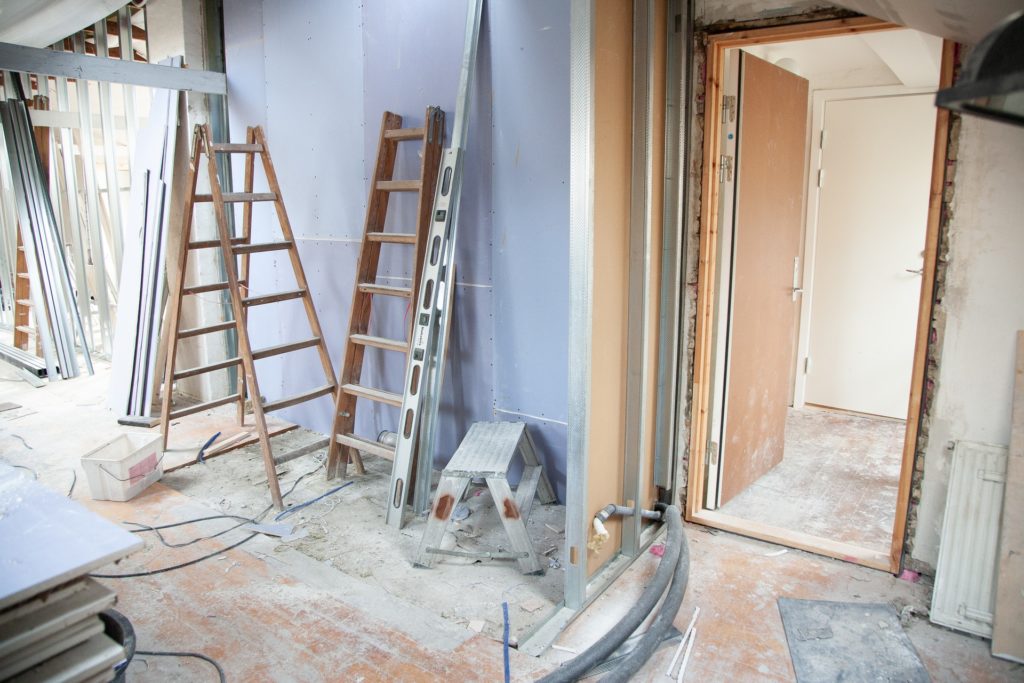Do you have the money set aside to purchase a new washer and dryer or refrigerator when the ones you have break unexpectedly? Neither do most homeowners. These appliances are expensive. They generally last from five to fifteen years, with anything past that a bonus. When a family purchases an existing home, it is common to forget to ask for information on all the appliances, such as age and the location of owner’s manuals. This can be an expensive mistake. If the buyer gets a home inspection, these questions can be answered. But that is no guarantee for future operating time. A home warranty can help.
What is a Home Warranty?
Before signing up for a home warranty, a homebuyer should know what it is. A home warranty is not the same as and does not replace the homeowner’s insurance. Homeowner’s insurance covers damage to a home resulting from events such as weather, fire, vandalism, certain types of water damage, and so on.
A home warranty is a contract between the home warranty company and the homeowner that provides for the discounted repair and replacement service for a home’s components, including the furnace, HVAC, plumbing, and electrical appliances. it can also cover major appliances, such as refrigerators, ranges, ovens, washers, and dryers. It can also cover other items, like swimming pools.
It is important for the homeowner to read the list of covered items carefully. The warranty company will cover additional appliances or systems for an upgraded cost. The home warranty includes repair services by their approved service providers with a small service fee paid by the homeowner. The home warranty company will work with each homeowner for the right coverage.
Is a Home Warranty Worth the Money?
For many people, a home warranty is a good idea and is worth the small investment. But, for others, it would be better to skip it. If the seller or the real estate company wants to give the homebuyer a home warranty, it should be accepted since there is no upfront cost involved. But, if the homeowner is purchasing a home warranty, they should pick the company carefully and read the contract to make sure it covers what they want to be covered and to check out the hidden costs and limitations.
Make sure the company is reputable by checking online ratings and reviews and then make sure the company uses good-quality, honest, and skilled repair contractors. Make sure the company will really pay for legitimate repairs and have them done in a reasonable amount of time. Then, check out their exclusions clause so you are sure about conditions for coverage.
Who needs a Home Warranty?
If the home buyer is new to homeownership and has no experience maintaining or repairing home appliances, it is a good idea to get a home warranty for at least the first year or so. If a family is on a limited budget and cannot afford unexpected repair bills or emergency appliance replacement, a home warranty is a good investment. You know how much the contract expense is and how much the repair service charge will be in advance.
Older homeowners can benefit from these agreements, and anyone with older appliances should consider a home warranty. Every homebuyer should consider the benefits and costs to determine if this will be a benefit. Factor in the $300 to $700 annual warranty cost and the stated service fees. The home warranty can act as a safety buffer for many homeowners. Homeowners with expensive tastes in appliances and busy schedules benefit from these warranties.
Who Does Not Benefit From a Home Warranty?
A homebuyer purchasing a newly built home will not need a home warranty because all the new systems and appliances will have builders or manufacturer’s warranties. A homebuyer purchasing an older home in need of work and planning on replacing systems and appliances soon will not benefit from a home warranty. They would be better off saving the money for the home renovation. These buyers would do well to get a discount on the home’s selling price to cover appliance replacement.
Homeowners who have the ability and the time to maintain and repair their own appliances most of the time will not benefit from this agreement. They would be better off saving money to use for repairs and parts they plan on doing themselves. Homeowners who do major renovations including new systems or appliances will not benefit from home warranties and will have manufacturer warranties to cover the new appliances.

How to Choose a Home Warranty Company
If the Realtor or seller is providing the home warranty, the buyer does not always have a choice as to the company. But, if the homeowner is purchasing a home warranty themselves, they can go online to rating companies to check out the home warranty companies they are considering. Make sure the company has local offices and used dependable local repair professionals.
When researching home warranty companies, the homeowner should determine what their coverage needs are. Determine the age, condition, and the service histories of all the home’s appliances and systems. Older, but still in good condition appliances are good candidates for home warranties.
If your appliances or systems have not been properly maintained or have a history of breaking down, they may not be covered. Be sure to read the warranties contract carefully to find all the coverage exclusions and the homeowner responsibilities for coverage. no one wants unpleasant surprises when an appliance breaks down. Consider a warranty company that requires a home inspection to decide which appliances will be covered.
The less expensive the appliance, the lower the need is to have it included in the warranty agreement. Microwaves, mixers, and other small appliances do not need to be on the warranty and adding to the cost.
Look for warranty companies that belong to national accreditation organizations such as the National Home Service Contract Association. This means they have met certain conditions of honesty and service.
If the homeowner has a history with certain local repair contractors, it is worth checking out a warranty company that lets the homeowner choose specific contractors.
How Do Home Warranties Work?
A home warranty works by making a specific agreement of coverage with a homeowner, and the contract lists what is covered and what is not. It also lists the homeowner responsibilities for appliance maintenance and proper use of appliances. The contract will list what is not covered, and the homeowner should pay close attention to this list.
The warranty company makes contrast with special repair contractors and appliance manufacturers for reduced prices. They base their warranty costs on these expenses. Then, when a homeowner calls with a broken-down appliance, the approved repair contractors are sent to the home.
When the homeowner calls for service the contractor comes to the home to determine if the appliance and repair expense will be covered by the contract. If it is covered, they complete the repair with the homeowner paying the required service charge. If the appliance and repair are not covered for some reason, the homeowner will still pay the service charge and will be responsible for the repair costs.
If an appliance that is covered cannot be repaired, the warranty company will replace it with a new model. But the warranty company chooses the model, not the homeowner. this may cause disappointment. At the start of the contract, the homeowner should be sure they are happy with the replacement conditions.
The homeowner can contact the home warranty company to renew the contract each year.
What is Not Covered?
It is important to read and understand the exclusion clauses stating what will not be covered. some exclusions include:
- Appliances and systems not listed on the contract
- Items deemed to be not properly maintained
- Cosmetic defects like scratches or dents that do not affect the appliance’s operation
- Damage from pests
- Appliances or systems that have been improperly installed, misused, or neglected
- Appliances or systems already covered by a manufacturer’s warranty
- Secondary damage caused by a malfunctioning appliance such as a washer or toilet that overflows
- Appliances or systems that were already malfunctioning or broken at the time the warranty took affect
- Appliances or systems that have been modified or required modifications when they are replaced.
The bottom line is that each homeowner should do a cost versus benefit study when considering a home warranty. Check out several companies with online rating services and get local recommendations from Realtors, lenders, and even appliance repair contractors. Read the warranty carefully before signing it. Make sure the warranty covers all the items you asked for, and be aware of all costs and exclusions listed in the warranty.
If you are purchasing a home and are not sure if you want a home warranty, it is perfectly okay to wait until you are more familiar with the new house and its systems and appliances. The contract usually lasts one year from when you sign it, so a few months will not matter. Be sure to ask questions of the warranty company representative to understand the coverage and the limitations of the warranty to avoid unpleasant surprises.




